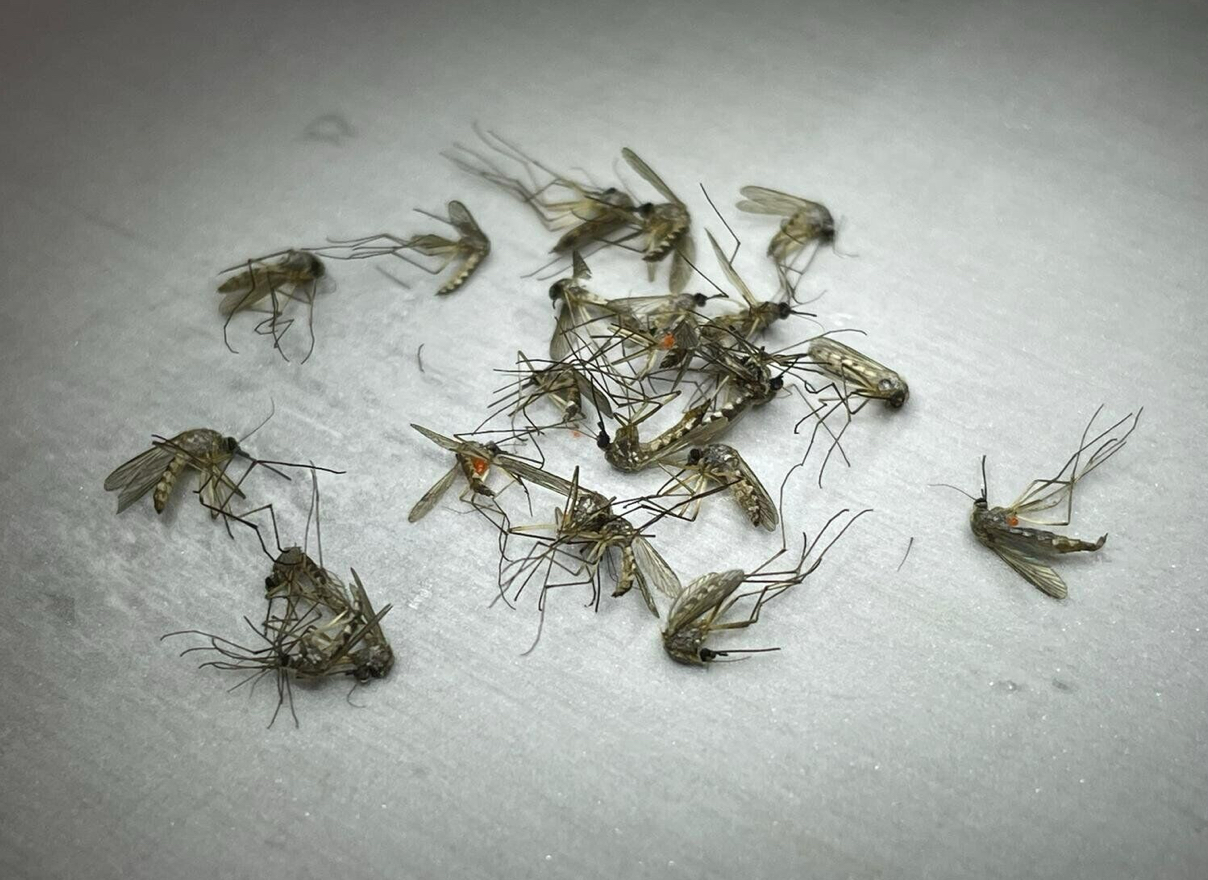
As Toronto recovers from recent floods that left thousands stranded and without power, residents are now bracing for a new threat: an increase in West Nile virus-spreading mosquitoes. The combination of stagnant floodwaters and the city's unusually warm and humid summer has created perfect breeding conditions for these pests.
Toronto was already seeing concerning numbers of mosquitoes capable of transmitting West Nile virus before the floods. According to Fiona Hunter, a professor of veterinary and medical entomology at Brock University, the conditions are now ripe for these mosquitoes to multiply rapidly. "We've already got positives for West Nile, and it's still early in the season," she explained. "It's because it's been so hot—heat and standing water are a nice combination for mosquitoes."
On Tuesday, Toronto Public Health announced that West Nile virus was detected for the first time this year in a batch of mosquitoes from the High Park area. This early detection suggests that the risk could be greater than in previous years as the summer continues.
Hunter highlighted the threat posed by Aedes trivittatus, a species of floodwater mosquito that thrives in post-flood conditions. These mosquitoes are not only capable of spreading West Nile virus and dog heartworm but also tend to bite people during the day when other mosquito species are less active. "They're little and they're aggressive. They're painful and they'll bite during the day as well as at dusk," Hunter noted.
Earlier this summer, surveillance data from Entomogen Inc. showed that the population of Aedes trivittatus had already doubled compared to the same time last year. With the current conditions, their numbers are expected to multiply further. "Within a couple of weeks, we'll see those numbers go way up," Hunter predicted.
Dr. Howard Shapiro, Toronto's Associate Medical Officer of Health, explained that while the floods may have washed away many developing mosquito larvae of other species, the threat from Aedes trivittatus remains significant. He emphasized that the risk of West Nile virus will likely increase as the summer progresses, despite the current low threat level.
To combat the rising mosquito population, residents are urged to eliminate standing water around their homes. This includes checking wheelbarrows, bird baths, potted plants, and gutters. Installing insect screens on windows and doors, wearing light-colored, long-sleeved clothing, and using Health Canada-approved insect repellents are also recommended.
West Nile virus is a potentially serious illness spread by mosquitoes that have fed on infected birds. While most infected people show no symptoms, the virus can lead to severe health effects, particularly in immunocompromised individuals, those with underlying health conditions, and people over 50. Symptoms typically appear within two to 15 days of a mosquito bite and can include fever, headache, rash, and muscle aches.
In severe cases, the virus can cause inflammation of the brain or the lining of the brain, requiring hospitalization. Residents who experience symptoms such as severe headache, high fever, stiff neck, nausea, vomiting, drowsiness, or confusion after a mosquito bite should seek medical attention immediately.
As Toronto heads into what experts warn could be a particularly bad year for West Nile virus, it is crucial for residents to stay informed and take proactive steps to protect themselves and their families. By addressing potential mosquito breeding sites and using preventive measures, the community can reduce the risk of infection and ensure a safer summer.
Toronto Star. (2024, July 17). ‘It’ll be a bad year’: West Nile virus-spreading mosquitos expected to multiply after Toronto flood, experts warn. Retrieved from https://www.thestar.com/news/gta/itll-be-a-bad-year-west-nile-virus-spreading-mosquitos-expected-to-multiply-after-toronto/article_426d1480-4387-11ef-92b8-17d15d5df215.html
